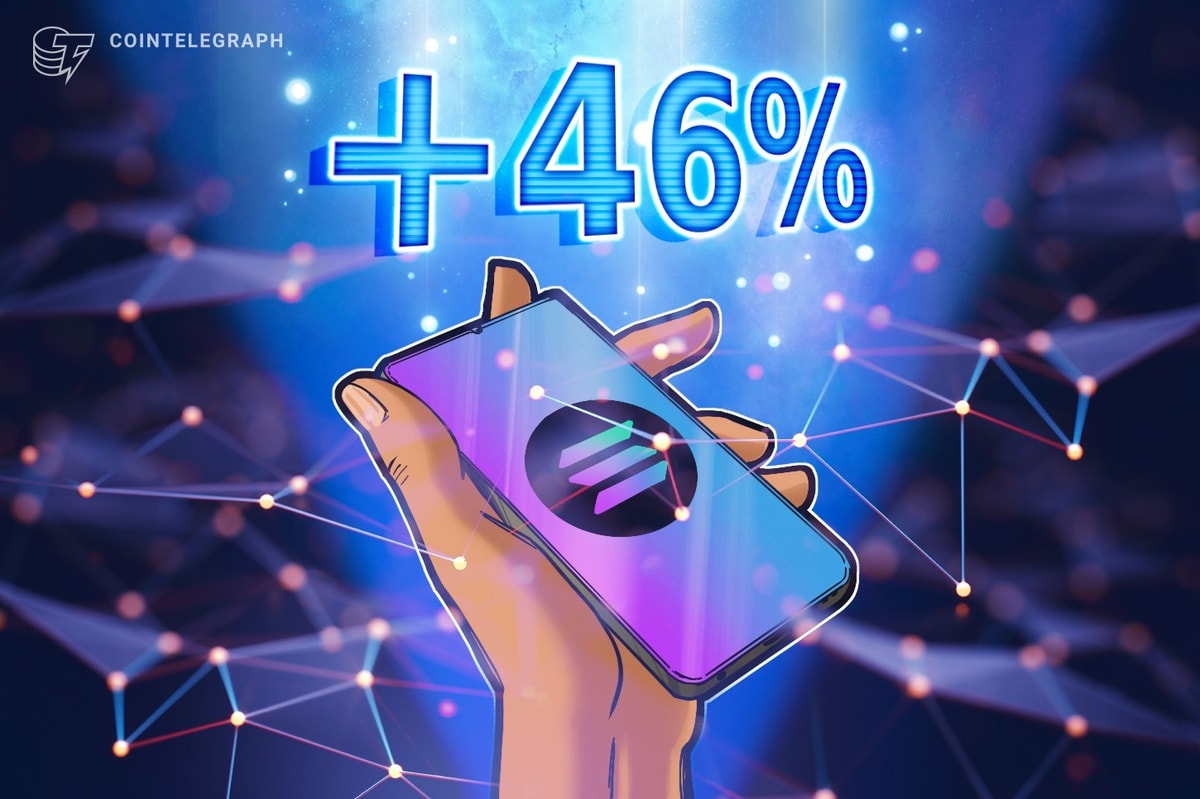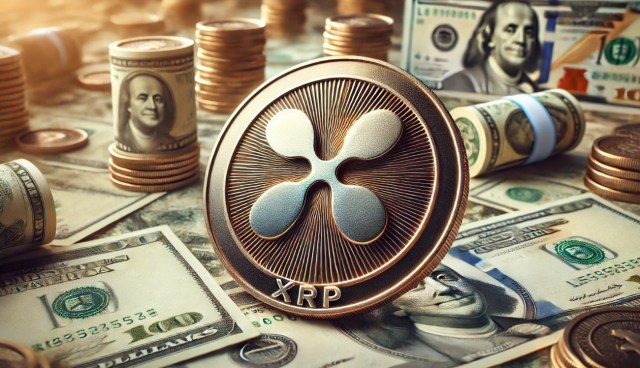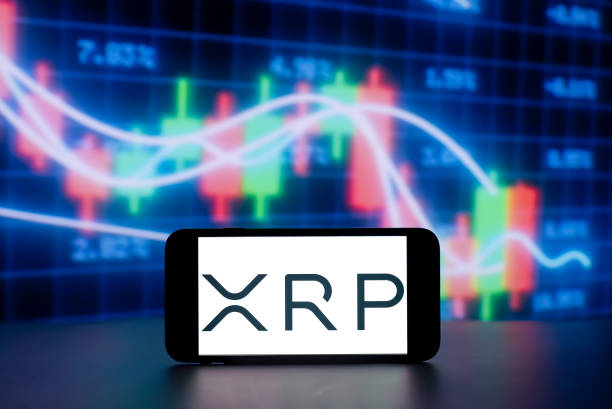Solana's native token, SOL (SOL), experienced a 9% decline over two days after peaking at $161.80 on Sept. 29, marking its highest level in seven weeks. This correction mirrored the broader altcoin market capitalization (excluding stablecoins), which reached approximately $800 billion in late September before dropping to $739 billion on Oct. 1.
SOL price is trending up backed by strong TVL and low fees
Despite this downturn, Solana network usage surged in the past week, prompting traders to question whether SOL has the potential to outperform its competitors.
Solana/USD (blue, left) vs. altcoin market cap (green). Source: TradingView
Notably, despite the recent correction, SOL's price has increased by 10.4% over the past 30 days, suggesting that overall market sentiment remains positive. Moreover, SOL continues to rank as the fourth-largest cryptocurrency by market capitalization and the third in total value locked (TVL), which measures the amount deposited in the network’s smart contracts.
Solana's network distinguishes itself with low latency and extremely low transaction fees, especially when compared to major competitors like Ethereum (ETH) and BNB Chain (BNB). According to GasFeesNow, the average transaction cost on Solana is a mere $0.02, while Ethereum's average approaches $2.50 and BNB Chain's is around $0.08. In this regard, Solana’s strategy to enhance network robustness through its validators has proven effective.
However, low fees alone do not guarantee increased inflows or network activity. Nonetheless, they offer a competitive advantage for users who prefer not to rely on layer-2 scaling solutions, which can add complexity and additional costs. For example, the Pump.fun memecoin launchpad achieved significant success among traders, reaching an impressive 65,000 daily active addresses in late July.
SOL potential comes from gaming and mobile applications
Experienced asset managers, such as VanEck, believe that SOL's price could grow by 120% from current levels due to its scalability, which is crucial for the adoption of stablecoins and remittances. A Sept. 25 report from VanEck cites institutional adoption potential and the extraction of value from Ethereum layer-2 solutions as the main drivers behind the improved investor perception of Solana.
Additionally, the announcement of Gameshift on Sept. 24—a gaming development API utilizing Google Cloud architecture and supported by Solana Labs—has been highlighted as a potential catalyst for increased demand on the network. Gameshift aims to provide a comprehensive suite of Web3 services for traditional game developers, including the integration of non-fungible tokens (NFTs) and digital assets.
Additionally, investors are placing significant hope in the launch of a new Solana-backed smartphone named Seeker, priced below $499. In addition to the much-anticipated token airdrops targeting these users, the device will feature an upgraded decentralized applications (DApps) store to better capture emerging use cases, according to Solana Labs.
Given this positive outlook, investors believe that recent growth in activity on the Solana network will eventually translate into higher demand for SOL. The network’s total value locked (TVL) increased to 36.1 million SOL on Sept. 30, remaining essentially flat compared to the prior two weeks but only 3% below its highest level in two years. In USD terms, the $5.5 billion in deposits surpasses the $4.6 billion TVL of BNB Chain, according to DefiLlama data.
However, according to DappRadar data, the most significant highlight in Solana's activity was DApp volumes, which increased by 46% compared to the previous 7-day period. In comparison, Ethereum DApps gained 12% during the same period, while BNB Chain's numbers remained flat. Notably, Ethereum’s gains were heavily dependent on Balancer, as its leading DApp, Uniswap, experienced a 6% decrease in volumes over the 7-day period.
Related: DeFi resurgence driven by Fed cuts, China, key protocols
Top Solana DApps ranked by 7-day volumes, USD. Source: DappRadar
Meanwhile, gains on Solana occurred across the board, with Marinade Finance up 66%, Pump.fun gaining 93%, and Solend jumping 143% over the last seven days. Similarly, the number of active addresses engaging with smart contracts increased by 13% during the past week, driven by gains on the Jupiter exchange, which amassed over 2.77 million unique addresses.
Based on current news flow and network activity, SOL's price appears poised to outperform the altcoin market, potentially paving the way for a bull run toward $180 or higher.
This article is for general information purposes and is not intended to be and should not be taken as legal or investment advice. The views, thoughts, and opinions expressed here are the author’s alone and do not necessarily reflect or represent the views and opinions of Cointelegraph.










